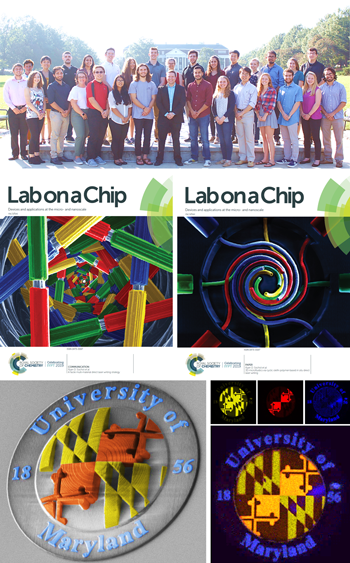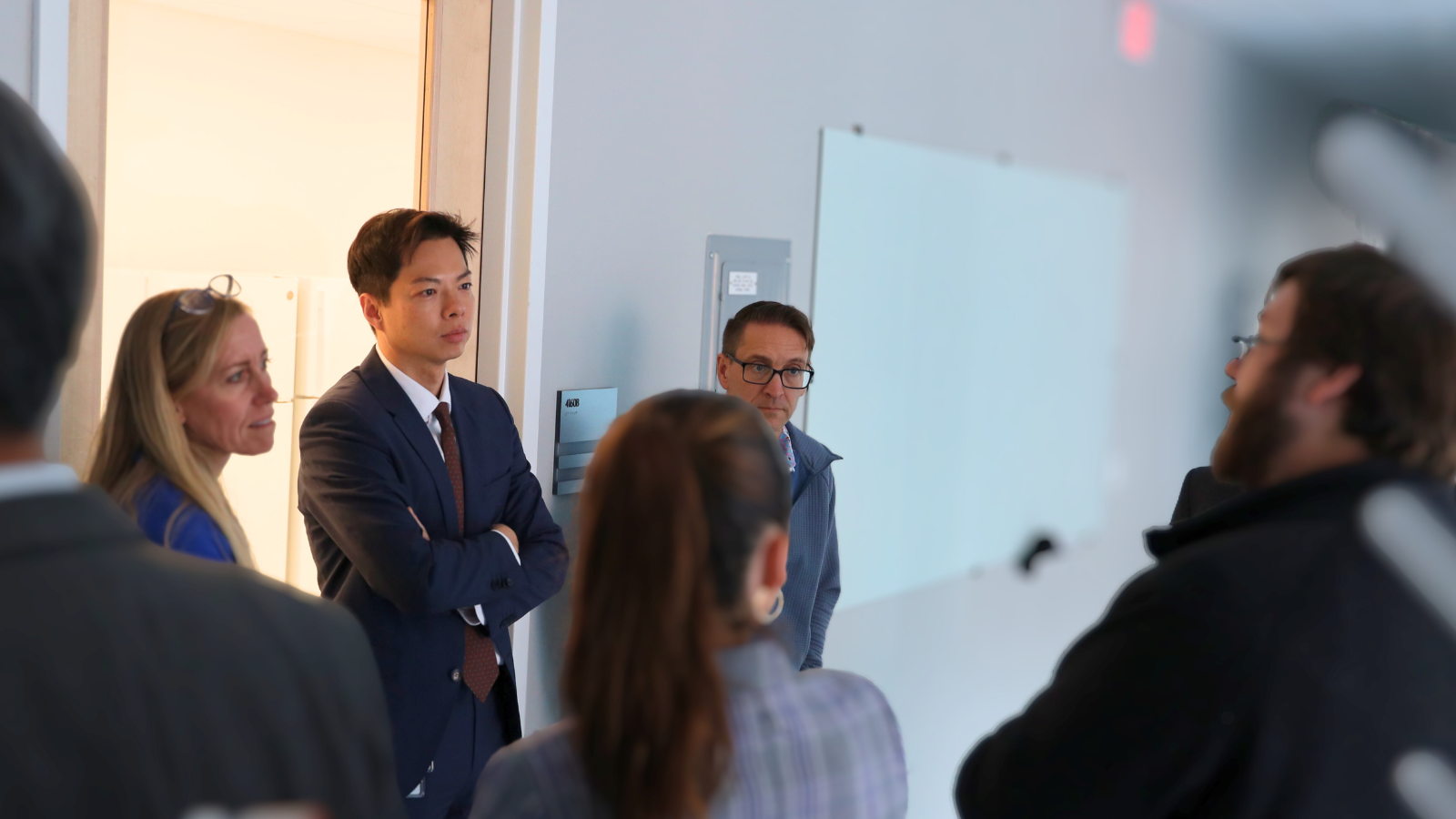News Story
Sochol Receives NSF CAREER Award to Explore New Multi-Material 3D Nanoprinting Technique
 The National Science Foundation (NSF) awarded Mechanical Engineering Assistant Professor Ryan Sochol a Faculty Early Career Development Program (CAREER) Award for his project, “High-Aspect-Ratio Multi-Material Three-Dimensional Microstructures via Microfluidic Direct Laser Writing”. The $500K award will fund five years’ worth of work enabling Sochol to expand his research in the area of additive nanomanufacturing or “3D nanoprinting” with multiple materials.
The National Science Foundation (NSF) awarded Mechanical Engineering Assistant Professor Ryan Sochol a Faculty Early Career Development Program (CAREER) Award for his project, “High-Aspect-Ratio Multi-Material Three-Dimensional Microstructures via Microfluidic Direct Laser Writing”. The $500K award will fund five years’ worth of work enabling Sochol to expand his research in the area of additive nanomanufacturing or “3D nanoprinting” with multiple materials.
“Direct Laser Writing” is a type of 3D printing that uses light to solidify reactive liquids in order to build objects nearly 1,000 times smaller than the thickness of a human hair. Historically, printing such small structures with more than one material was expensive, slow, and imprecise until Sochol’s group introduced “Microfluidic Direct Laser Writing (μF-DLW)”.
One of the biggest challenges to the μF-DLW approach being used more broadly is the current inability to reliably, repeatedly, and accurately print multi-material objects that are far taller than they are wide, such as a microscale Eiffel Tower. Part of Sochol’s NSF-funded research will be to understand why this limitation exists for such tall and thin (or “high-aspect-ratio”) microstructures, and then develop new approaches to address and overcome them.
If successful, this new ability to manufacture sophisticated microsystems made of multiple, fully integrated materials—designed with unique optical, biological, chemical, electrical, and/or mechanical properties—could open doors for emerging applications across a variety of fields. For example, Sochol and his team are currently working with the School of Pharmacy to realize 3D nanoprinted pharmaceuticals with multiple materials designed to controllably release therapeutic drugs in the body to limit the potentially dangerous side effects of some medicines.
Beyond expanding 3D printing capabilities at the micro/nanoscale, Sochol aims to create educational opportunities within his Bioinspired Advanced Manufacturing (BAM) Laboratory including summer programs for high school women interested in pursuing STEM, year-long integrated research programs for local high school students, and a four-year-long honors thesis project for undergraduate students at Maryland.
“Diversity within a team leads to better problem solving and performance,” explained Sochol. “The educational and research opportunities offered by this research will drive such outcomes by inspiring a lasting interest and confidence in manufacturing research for students from underrepresented groups in science and engineering.”
According to Sochol, the popularity of 3D printing provides an excellent entry point for students to learn about design, manufacturing, prototyping, testing, and data analysis. Through this five-year funded research, he anticipates more than 450 students—high school, undergraduate, and graduate—will have opportunities for meaningful additive manufacturing learning experiences.
More than 100 undergraduate researchers have performed work in Sochol’s group, and fostering long-term, mentored research experiences for UMD students has been a cornerstone of his lab’s success.
The Faculty Early Career Development (CAREER) Program offers NSF’s most prestigious awards in support of early-career faculty who have the potential to serve as academic role models in research and education and to lead advances in the mission of their department or organization. Sochol’s CAREER Award was funded under NSF Program Manager Andrew Wells as part of the Advanced Manufacturing (AM) Program within the Division of Civil, Mechanical, and Manufacturing Innovation (CMMI) of the Engineering (ENG) Directorate.
Published January 28, 2020









